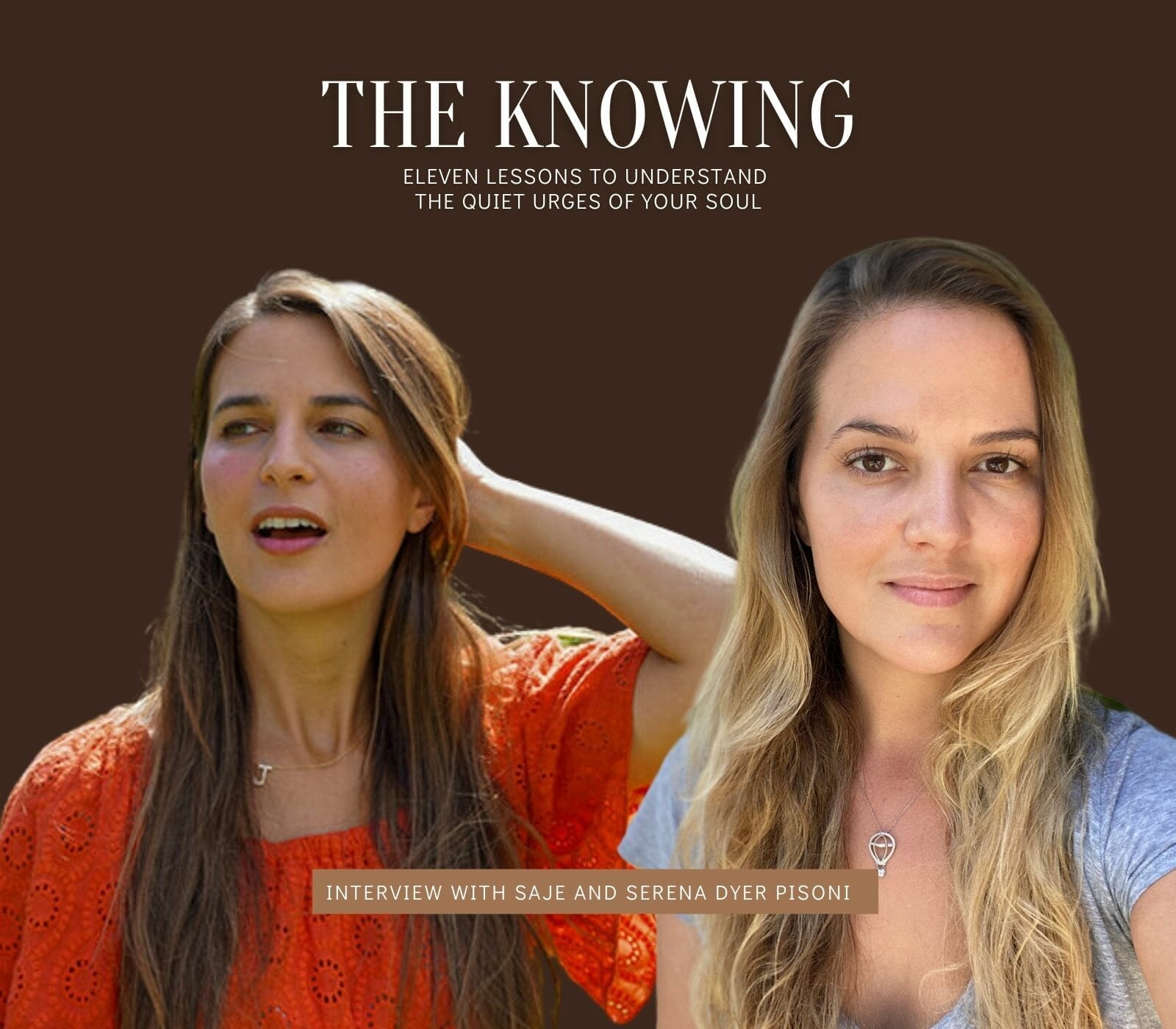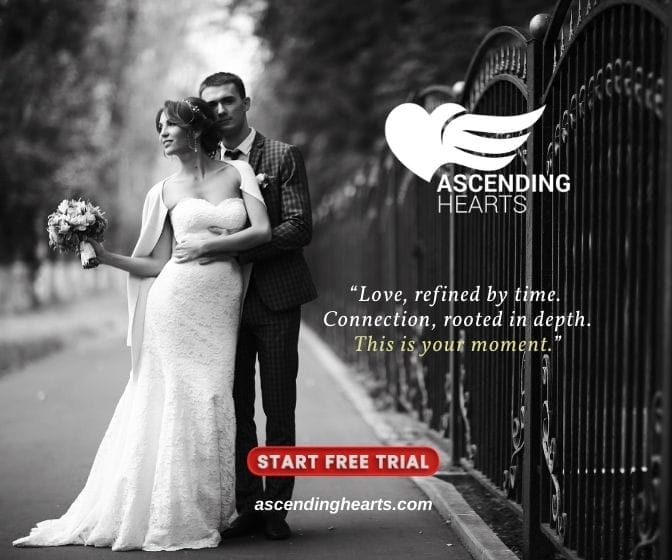Serena Dyer and Saje Dyer: The Knowing

Sandie Sedgbeer: The book is called The Knowing: Eleven Lessons to Understand the Quiet Urges of Your Soul, and you say you didn’t discover the knowing. You simply returned to it. Was that return a gradual thing or was it something that came pretty quickly after your father passed?
Serena Dyer Pisoni: For me, as Serena, this was very gradual, keeping my head just barely above water, trying not to drown in all of the tragedies and difficulties. For me, the return to the knowing was prolonged, painful, often full of slipups, and very, very gradual.
Sandie Sedgbeer: Saje and Serena, you talk about how once you recommitted to the teachings of your father, you begin to create your own evolution of his principles. How did those principles evolve?
Serena Dyer Pisoni: As I was saying before, I had so many massive things take place in my life in a short time. Just to list a few of them, my father passed away, I had given birth, I was a mother for the first time, my husband was indicted for a white-collar related business crime—he had a trial, he was sentenced to prison, my stepson who I’d grown up raising with my husband, he passed away as a teenager as a result of an accidental drug overdose. I had financial things that were difficult, enormous stressors, so to say that I had challenges, I had significant life-changing tragedies take place all within a brief period, and I was aware that my dad’s teachings were available to me, I was aware that I could tap into some of the spiritual lessons that he had raised my sister Saje and the rest of us on.
But truthfully, I was looking outside of myself. I was buying into the idea that once all of these pieces in my life fell into place, then I could have peace. First, I would begin my spiritual journey, then be a writer or a speaker on these things, but I was raised on the opposite. I was raised to know that I have to have peace for the pieces in my life to fall into place. That it begins with me, and it begins within me as our dad used to quote Herman Melville from Moby Dick, so in the soul of man lies one insular Tahiti filled with peace and joy but surrounded by the horrors of the half-lived life.
I had to find my inner Tahiti. I call it my inner Maui because Maui is a paradise for me. Still, I knew logically, and I knew that I had to go within to find it on paper, but I didn’t want to.
I wanted it to be everybody else’s fault, I wanted to be able to look outside of myself and believe I could do all of that, I could be spiritual, I could have the tools once the circumstances fell into place, I didn’t want to do the work, and I didn’t want it to have to begin with me because, in some ways, there’s enormous freedom and power in understanding that life is responding to you and that you ultimately have the choice to decide for yourself the energy you are going to bring to every situation. But sometimes, at least for me, it was easier to not have to do the work. It was easier to point everywhere else but myself. It was easier to buy into the idea that I could be peaceful, be spiritual, sure! Once all the crap in my life was in order, then I would, sure! But we all do that. It’s when I have a million dollars, then I’ll be generous. When I lose 15 pounds, then I’ll take care of myself.
When I meet the right man, we all do that when I have a better boss, but luckily, I also knew that would never get me where I wanted to be. So, I had to show up for myself, and our dad said, so many times, “Look, Serena, if you are not generous when you are poor, you will not be generous when you are rich. Generosity has everything to do with who you are and nothing to do with your circumstances.” I know that was a long answer.
Saje Dyer: For me, it was also gradual. I mean, I remember my dad passed away in this very sudden—he wasn’t sick or dying. He often talked about how we all come here with a round-trip ticket, and we celebrate so much the first leg of that trip, the birth. We continue to celebrate our birthdays our whole lives because we celebrate them to that degree; it’s something we never question when we’re born. When anybody is born, it’s just something to celebrate. In the same vein, when our return ticket is called to go back home, so many of us fear that day that return trick for ourselves or our loved ones, and I was taught not to fear that.
I was raised around 2 parents who constantly talked about how they looked forward to the next adventure and how that was, you’re going to return to a place of love and know it for the first time.
Sandie Sedgbeer: What’s neat about your book is that for those of us who’ve read lots of your father’s books, we’ve got a lot of them all gathered together all in one place to remind us. I really enjoyed remembering, Be the student of your circumstances, not the victim. The mind forgets, the soul remembers. When we experience joy, we experience God. Those kinds of things, and it’s so lovely to remember those because those words have so much power.
Serena Dyer Pisoni: and it’s so funny you’re saying remembering because our original title was going to be Remembering.
We say that knowing is something that you return to. It’s not something you uncover for the first time because you already know it; it’s already within you. But we also felt that remembering really applied because all these things are inherent within us. We all come here fresh from God if you will, and we all go home to that same place, and this is the classroom. So, it was about remembering our actual essence, remembering it was available and part of every one of us. So, I love that you said that because we really were going to name the book Remembering because we felt so poignant.
Sandie Sedgbeer: You’ve got 11 lessons that cracked you open, How the soul remembers—How to be a host of miracles instead of a hostage to circumstance. I mean, these things remind me of—there are some books you come across that are so simple and just have a few lines in them. You think about The Four Agreements, and those four agreements have tapped so many people in some of the things your father used to say live. They live within people’s hearts. They become directions, they become road maps, they become signs to guide us through life. Of those chapters, do you each have a favorite?
Saje Dyer: It’s hard to say if I have a favorite. They all apply at different times in my life, and that’s how we settled on them because, like you were saying, they are the big lessons that our dad taught, and there are some of the big themes that a lot of it boils down to.
He wrote over 30+ books throughout his career, but a lot of it still boiled down to these same sorts of principles. So, it’s really just who you align with, about being in alignment and going with the flow and not resisting life and all that.
What are you supposed to do when you’re not in the flow because we all get there at times? It’s pointless to sit there in judgment of yourself because then you’re just going to go more against the flow. One example I remember my dad telling me when I was younger, if you can’t find happiness for yourself, find it for somebody else.
Continue to Page 3 of the Interview with Serena Dyer and Saje Dyer
Click HERE to Connect with your Daily Horoscope on OMTimes!
Visit Our Astrology Store for Personalized Reports
OMTimes is the first and only Spiritually Conscious Magazine. Follow Us On Facebook, Twitter, Instagram, Linkedin, Pinterest, and Youtube
A veteran broadcaster, author, and media consultant, Sandie Sedgbeer brings her incisive interviewing style to a brand new series of radio programs, What Is Going OM on OMTimes Radio, showcasing the world’s leading thinkers, scientists, authors, educators and parenting experts whose ideas are at the cutting edge. A professional journalist who cut her teeth in the ultra-competitive world of British newspapers and magazines, Sandie has interviewed a wide range of personalities from authors, scientists, celebrities, spiritual teachers, and politicians.





